Especialidad en Sistemas Embebidos
ALICIA_DIAZ_WHATS_CTA3
Inicia tu proceso de admisión vía WhatsApp
ESE_ESTE_POSGRADO_CTA2
Este posgrado
Innova con tecnología de alto valor agregado y sustentable que abone en la búsqueda del bienestar social a partir del diseño, la prueba y la implementación de sistemas embebidos y el uso del Internet de las cosas.
Mtro. Martín Alonso Sinsel Duarte
Ingeniero en Electrónica y Maestro en Electrónica Industrial, ambos por el ITESO. Profesor de Licenciatura por más de 25 años en el ITESO y el Tec de Monterrey. Profesor a nivel Maestría en el ITESO, Tec de Monterrey y CINVESTAV Guadalajara.
Responsable del Diseño de la Especialidad en Sistemas Embebidos para el ITESO en 2011. Cuenta con más de 30 años de experiencia industrial en temas de Ingeniería Electrónica. En PyMEs como ASCI, y Soluciones Tecnológicas. Consultor para varias empresas. Freelance en diseño de sistemas electrónicos.

CUERPO_ACADEMICO_ESE_CTA
Cuerpo académico
esta especialidad
Cursas un programa que promueve el desarrollo de actividades en laboratorio, aplicación de proyectos y desarrollo de productos específicos.
Tienes acceso a laboratorios especializados para el análisis, diseño, prueba y mantenimiento de sistemas embebidos.
Recibes acompañamiento de un cuerpo académico reconocido nacional e internacionalmente, con integrantes del SNII.
subtitulo 01
parrafo 01
subtitulo 02
parrafo 02
Este posgrado es para ti
- Egresados de ingenierías en Electrónica, Electrónica y Comunicaciones, Sistemas Electrónicos, Tecnologías Electrónicas, Sistemas Computacionales, Mecatrónica o afines.
- Con experiencia en la industria electrónica, que hayan desarrollado sistemas embebidos y que quieran avanzar en las metodologías para el desarrollo de estos sistemas.
- Que deseen enfrentar nuevos retos en este campo e impulsar la competitividad de la industria.
- De instituciones educativas donde los sistemas embebidos, en cualquier forma, son parte del objeto de estudio del programa.
- Emprendedores que hayan desarrollado sistemas embebidos y que quieran formar su propia área de diseño para ofrecer soluciones a los mercados local y global.
- Analizar requerimientos, aplicar el diseño basado en un enfoque metodológico, depurar sistemas embebidos, incluyendo interfaces software-hardware, software de aplicación y otros elementos.
- Integrar módulos (stacks) de comunicaciones estándar y adecuarlos para una aplicación en particular, así como desarrollar módulos propios que incluyan protocolos como USB, Thread, Bluetooth, GPRS, Zigbee, WiFi, ethernet, CAN, LIN, Flex Ray, etcétera.
- Manejar sistemas operativos comerciales, tales como WinCE o Linux Embebido, para el desarrollo de aplicaciones, implementando manejadores de dispositivos (device drivers) y la configuración del sistema operativo para cumplir con las necesidades de una aplicación específica.
- Diseñar, realizar pruebas e implementar aplicaciones para el Internet de las cosas.
- Aplicar metodologías de desarrollo y pruebas de software embebido, para que sea un proceso documentado.
- Analizar requerimientos, aplicar el diseño basado en un enfoque metodológico, depurar sistemas embebidos, incluyendo interfaces software-hardware, software de aplicación y otros elementos.
- Integrar módulos (stacks) de comunicaciones estándar y adecuarlos para una aplicación en particular, así como desarrollar módulos propios que incluyan protocolos como USB, Thread, Bluetooth, GPRS, Zigbee, WiFi, ethernet, CAN, LIN, Flex Ray, etcétera.
- Manejar sistemas operativos comerciales, tales como WinCE o Linux Embebido, para el desarrollo de aplicaciones, implementando manejadores de dispositivos (device drivers) y la configuración del sistema operativo para cumplir con las necesidades de una aplicación específica.
LGAC_DISENO_DISPOSITIVOS_CIRCUITOS_BL5
Líneas de Generación y Aplicación del Conocimiento
Definición
Diseño de dispositivos, circuitos y sistemas electrónicos
Las Líneas de Generación y Aplicación del Conocimiento (LGAC) son los campos temáticos que caracterizan al programa. En ellas confluyen las trayectorias de investigaciones o de trabajo profesional de profesores y alumnos desde una perspectiva sistémica de generación de nuevo conocimiento o su aplicación, según su naturaleza y enfoque.
En este programa se abordan temáticas que van desde los requerimientos, ejecución, planeación, seguimiento, implementación, validación y seguridad de la información.
Se analizan los escenarios de entrada/salida de la información de los embebidos, se calendarizan los procesos en los sistemas operativos con metodologías de desarrollo como Autosar, A-SPICE y MISRA.
Líneas de Generación y Aplicación del Conocimiento
Las Líneas de Generación y Aplicación del Conocimiento (LGAC) son los campos temáticos que caracterizan al programa. En ellas confluyen las trayectorias de investigaciones o de trabajo profesional de profesores y alumnos desde una perspectiva sistémica de generación de nuevo conocimiento o su aplicación, según su naturaleza y enfoque.
En este programa se abordan temáticas que van desde los requerimientos, ejecución, planeación, seguimiento, implementación, validación y seguridad de la información.
Se analizan los escenarios de entrada/salida de la información de los embebidos, se calendarizan los procesos en los sistemas operativos con metodologías de desarrollo como Autosar, A-SPICE y MISRA.
PLAN_RUTA_ESTUDIOS_ESPECIALIDAD_SISTEMAS_EMBEBIDOS_CTA
Plan de estudios
EXPERIENCIA_POSGRADO_BT1

ITESO’s graduate programs are supported by a renowned academic faculty comprising leading experts in their fields, who are actively engaged in real-world projects that offer concrete solutions. The university boasts over 100 researchers, 79 of whom are affiliated with Mexico’s National System of Researchers (SNII). Some are also members of the Mexican Academy of Sciences.
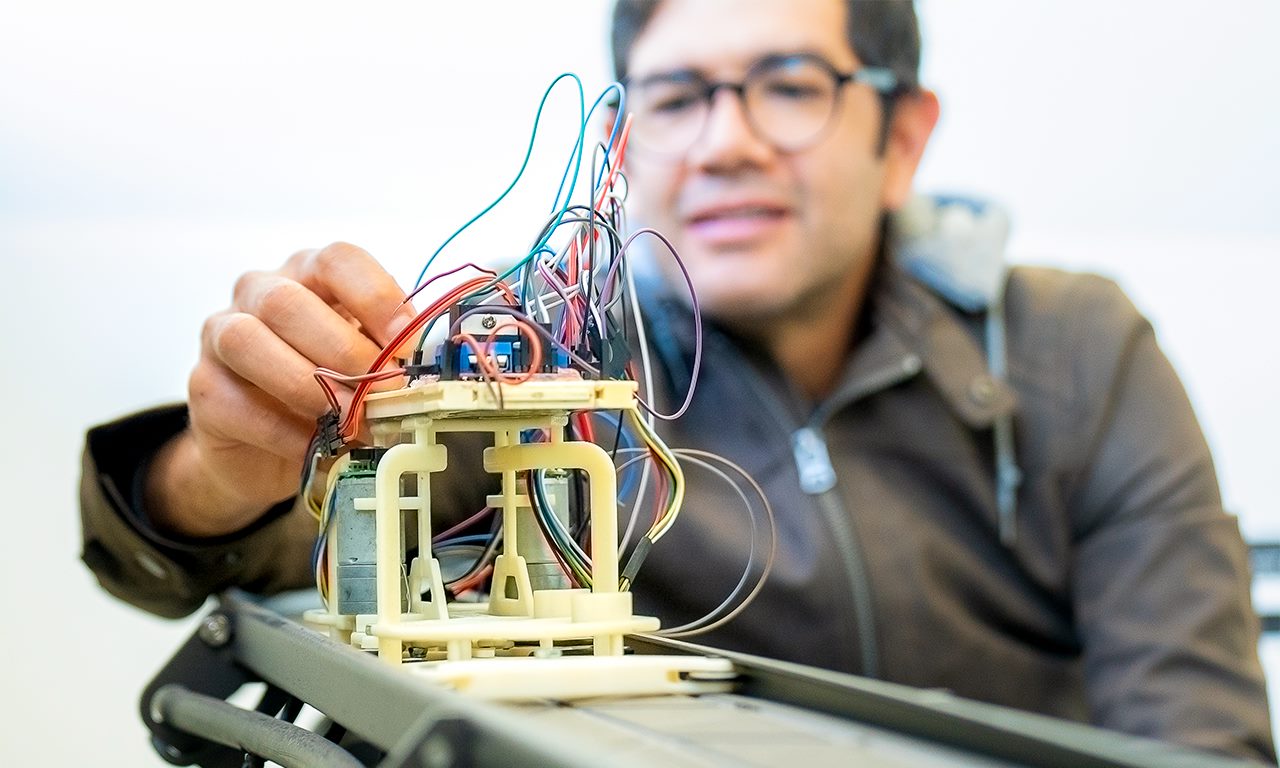
Research at ITESO generates new, rigorous, and relevant knowledge focused on some of the region’s and country’s most pressing challenges. Areas of impact include human rights, access to justice, renewable energy, sustainable resource management, food security, mental health and well-being, quality education, data science, and public communication, among others. These programs aim to offer development alternatives, influence public policy, foster technological innovation, and promote socially impactful projects.

One of the key advantages of ITESO’s graduate programs is the opportunity for international academic exchange through alliances with the International Association of Jesuit Universities (IAJU), a global network of over 320 institutions. Additionally, programs supported by Conacyt offer research stays in Mexico and abroad for fieldwork, study, or the completion of research projects.

Sustainability is an institutional priority that drives research, education, and community engagement projects at ITESO. These initiatives aim to develop comprehensive, long-term strategies for ecosystem stewardship that are in harmony with local communities. ITESO’s campus is one of the most sustainable in the country, and among the few in the world with a protected forest on its grounds.
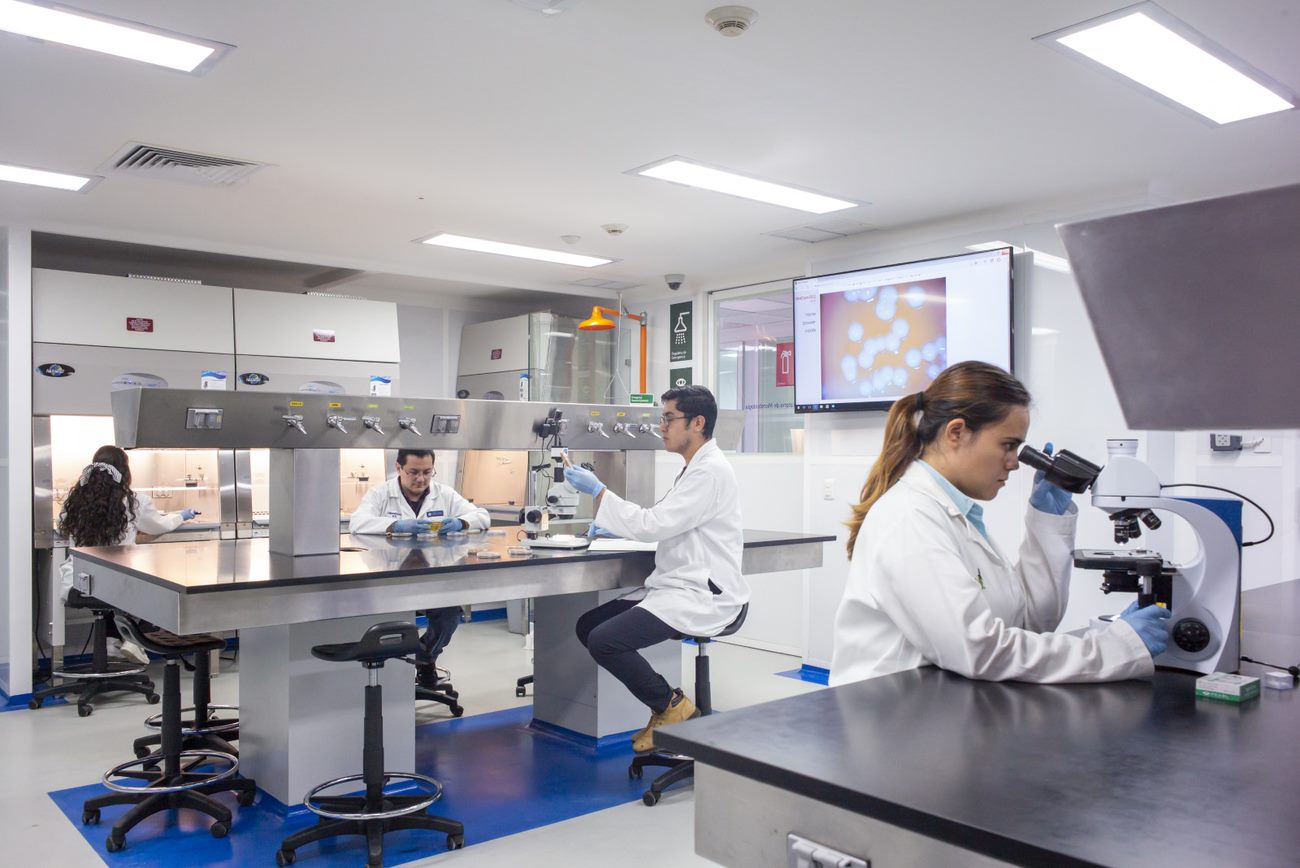
ITESO offers access to more than 100 specialized laboratories in areas such as nanotechnology, data science, food engineering, mechatronics, biotechnology, chemistry, systems, communication, multimedia, languages, nutrition, neuromarketing, arts, building technologies, and more. Facilities also include simulated courtrooms, exhibition spaces, mediation rooms, and audiovisual projection labs.
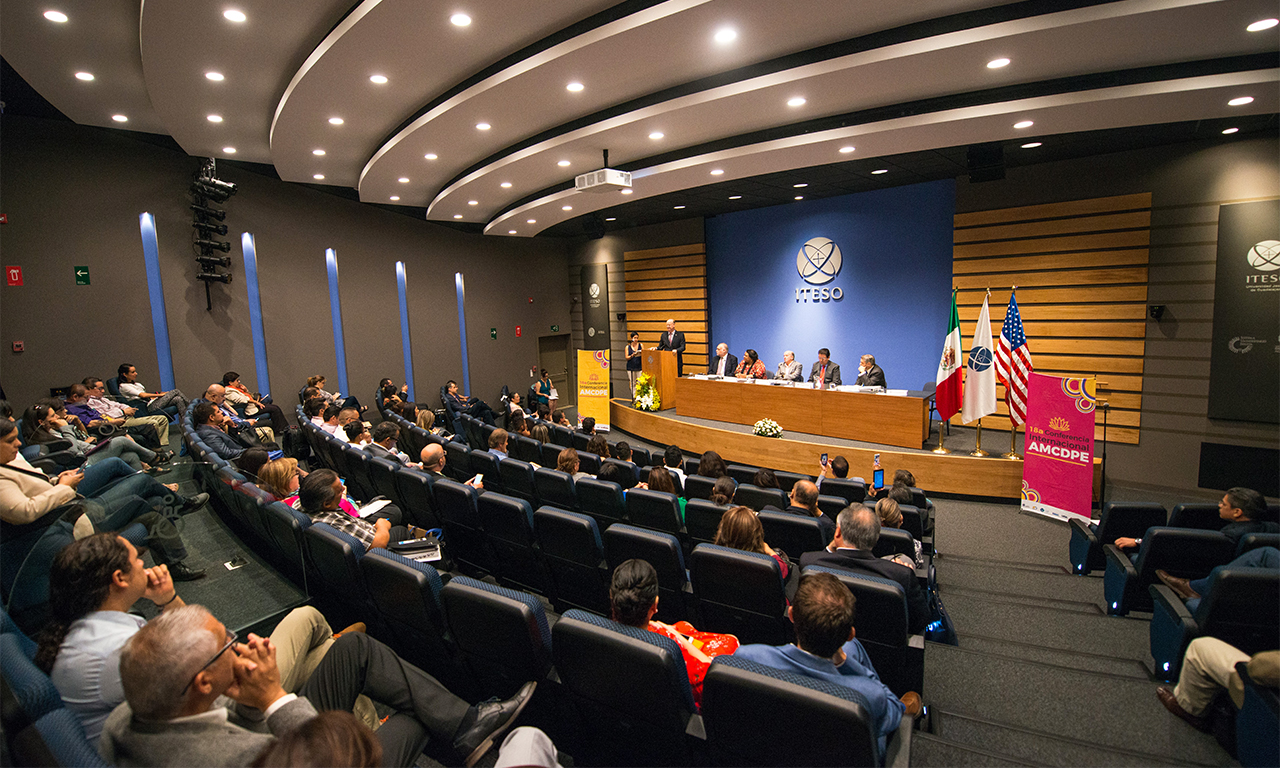
ITESO’s endowed chairs foster dialogue, critical thinking, and the exchange of ideas across sectors. They provide spaces for collaboration between academia, industry, and civil society, aimed at generating knowledge with high social impact. These initiatives also strengthen academic networks and support faculty and student mobility.
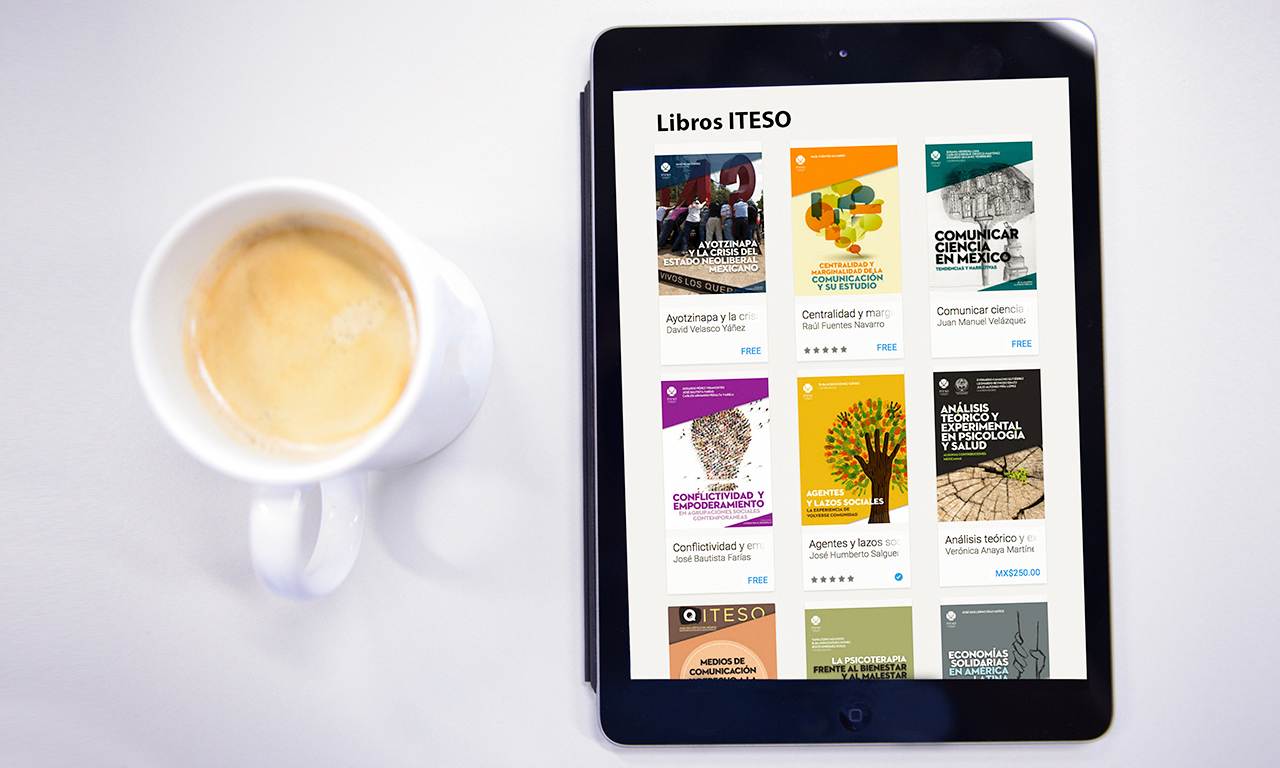
With more than 80 active academic journals and a robust catalogue of books, ITESO leads private universities in the region in scholarly publishing. Publications cover diverse disciplines, promote interdisciplinary collaboration, and are widely accessible—many available for free download online.

ITESO holds the most significant number of industry collaboration agreements among private universities in western Mexico. The university also offers dual-degree programs with institutions such as the University of Koblenz (Germany), Boston College, and Central Michigan University (USA).
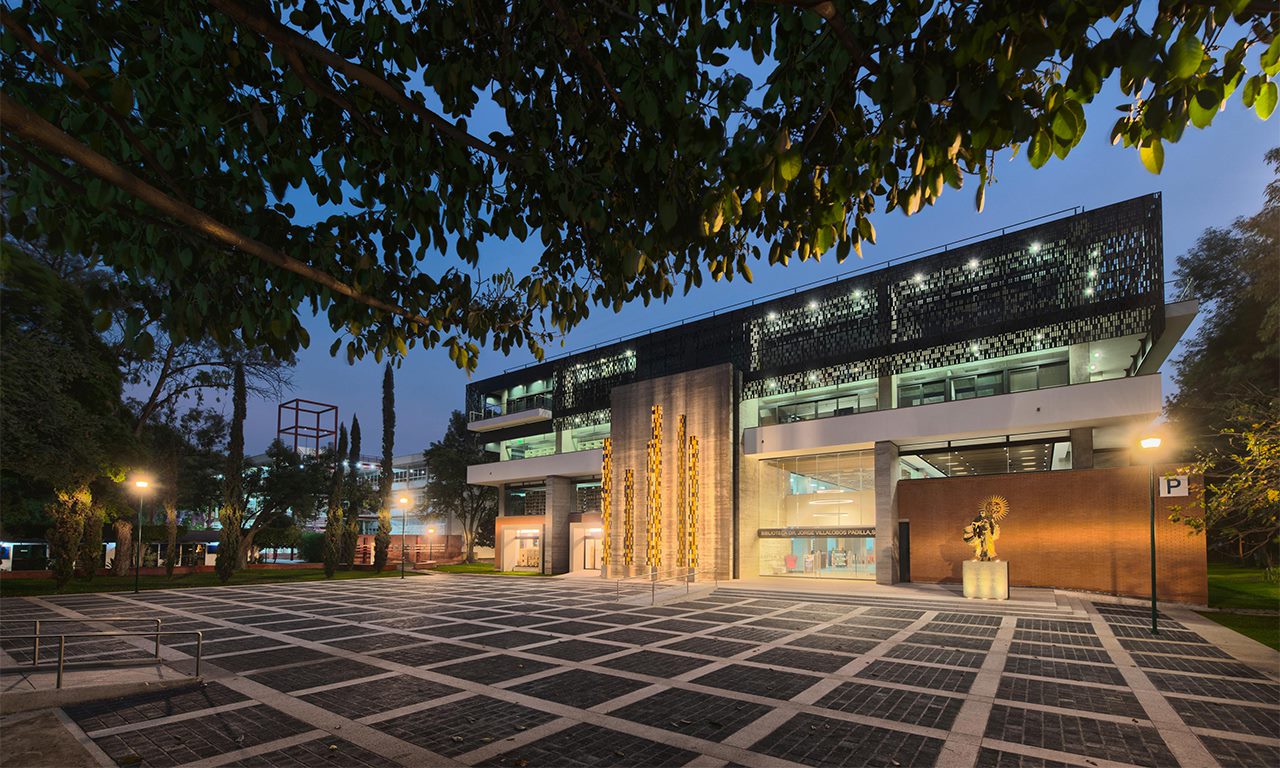
ITESO’s library houses more than 640,000 physical volumes and 200,000 digital resources, including books, journals, blueprints, films, and a collection of rare and antique books. Open to the public, the library features reading rooms, exhibition spaces, a cinema, an agora, a material library, and collaborative workspaces.

ITESO offers expert consulting and support for businesses at all stages of development through the Center for Innovation and Technology Management, the High-Impact Social Innovation Center, and the University-Business Center. Graduate students engage in projects focused on entrepreneurship, innovation, business acceleration, solidarity economies, and fair trade alternatives.
Distinguished faculty
Research programs
Academic mobility
Sustainability
Computer systems
Endowed chairs
Publications
Partnerships
Library
Business & Entrepreneurship
ITESO’s graduate programs are supported by a renowned academic faculty comprising leading experts in their fields, who are actively engaged in real-world projects that offer concrete solutions. The university boasts over 100 researchers, 79 of whom are affiliated with Mexico’s National System of Researchers (SNII). Some are also members of the Mexican Academy of Sciences.
Research at ITESO generates new, rigorous, and relevant knowledge focused on some of the region’s and country’s most pressing challenges. Areas of impact include human rights, access to justice, renewable energy, sustainable resource management, food security, mental health and well-being, quality education, data science, and public communication, among others. These programs aim to offer development alternatives, influence public policy, foster technological innovation, and promote socially impactful projects.
One of the key advantages of ITESO’s graduate programs is the opportunity for international academic exchange through alliances with the International Association of Jesuit Universities (IAJU), a global network of over 320 institutions. Additionally, programs supported by Conacyt offer research stays in Mexico and abroad for fieldwork, study, or the completion of research projects.
Sustainability is an institutional priority that drives research, education, and community engagement projects at ITESO. These initiatives aim to develop comprehensive, long-term strategies for ecosystem stewardship that are in harmony with local communities. ITESO’s campus is one of the most sustainable in the country, and among the few in the world with a protected forest on its grounds.
ITESO offers access to more than 100 specialized laboratories in areas such as nanotechnology, data science, food engineering, mechatronics, biotechnology, chemistry, systems, communication, multimedia, languages, nutrition, neuromarketing, arts, building technologies, and more. Facilities also include simulated courtrooms, exhibition spaces, mediation rooms, and audiovisual projection labs.
ITESO’s endowed chairs foster dialogue, critical thinking, and the exchange of ideas across sectors. They provide spaces for collaboration between academia, industry, and civil society, aimed at generating knowledge with high social impact. These initiatives also strengthen academic networks and support faculty and student mobility.
With more than 80 active academic journals and a robust catalogue of books, ITESO leads private universities in the region in scholarly publishing. Publications cover diverse disciplines, promote interdisciplinary collaboration, and are widely accessible—many available for free download online.
ITESO holds the most significant number of industry collaboration agreements among private universities in western Mexico. The university also offers dual-degree programs with institutions such as the University of Koblenz (Germany), Boston College, and Central Michigan University (USA).
ITESO’s library houses more than 640,000 physical volumes and 200,000 digital resources, including books, journals, blueprints, films, and a collection of rare and antique books. Open to the public, the library features reading rooms, exhibition spaces, a cinema, an agora, a material library, and collaborative workspaces.
ITESO offers expert consulting and support for businesses at all stages of development through the Center for Innovation and Technology Management, the High-Impact Social Innovation Center, and the University-Business Center. Graduate students engage in projects focused on entrepreneurship, innovation, business acceleration, solidarity economies, and fair trade alternatives.
INVESTIGACION_ITESO_GENERALES_POSGRADOS_TESTIMONIO
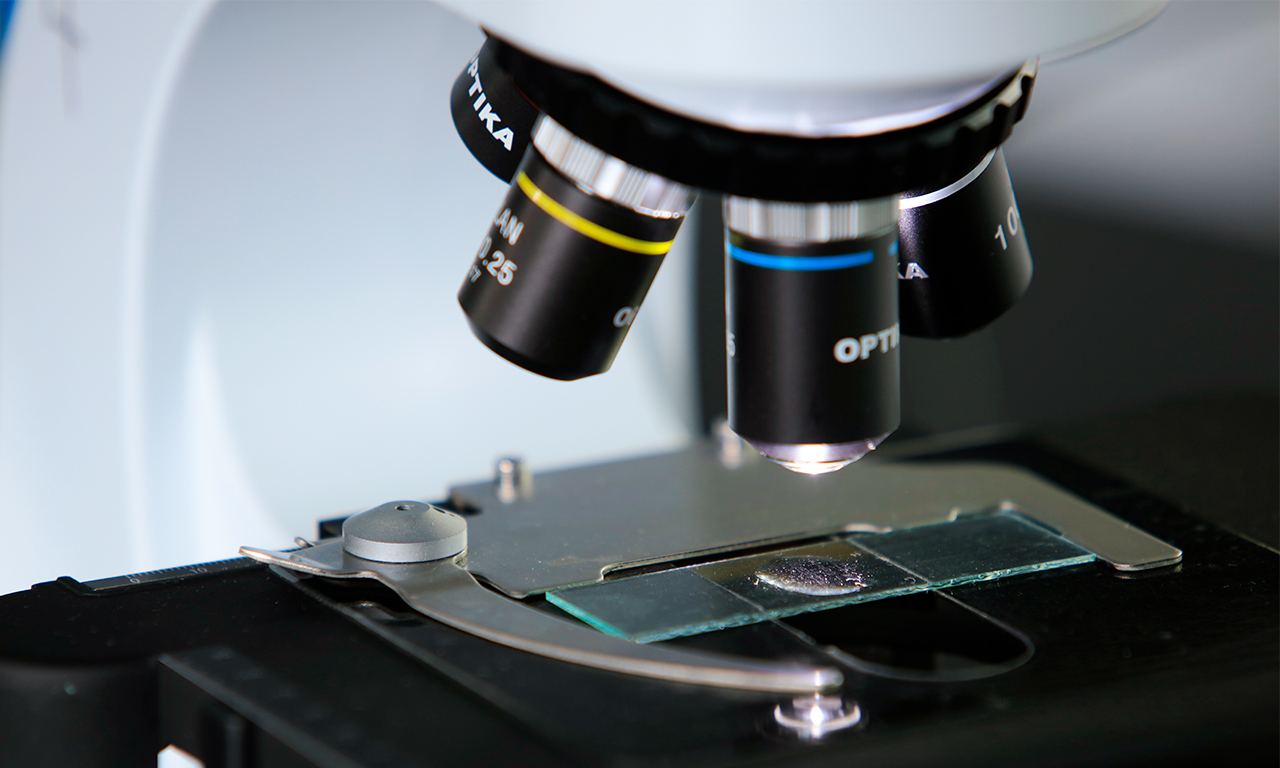
Research at ITESO
“Universities are called to be places of possibilities — to open horizons through research and engagement”.
Arturo Sosa, SJ
ACTIVIDADES_ESE_BC6
Noticias
Asset Publisher
PRODUCCION_ACADEMICA_ESE_BT4
OTROS_POSGRADOS_TITULO_GENERALES_POSGRADOS_BL3
Other graduate programs you may be interested in


